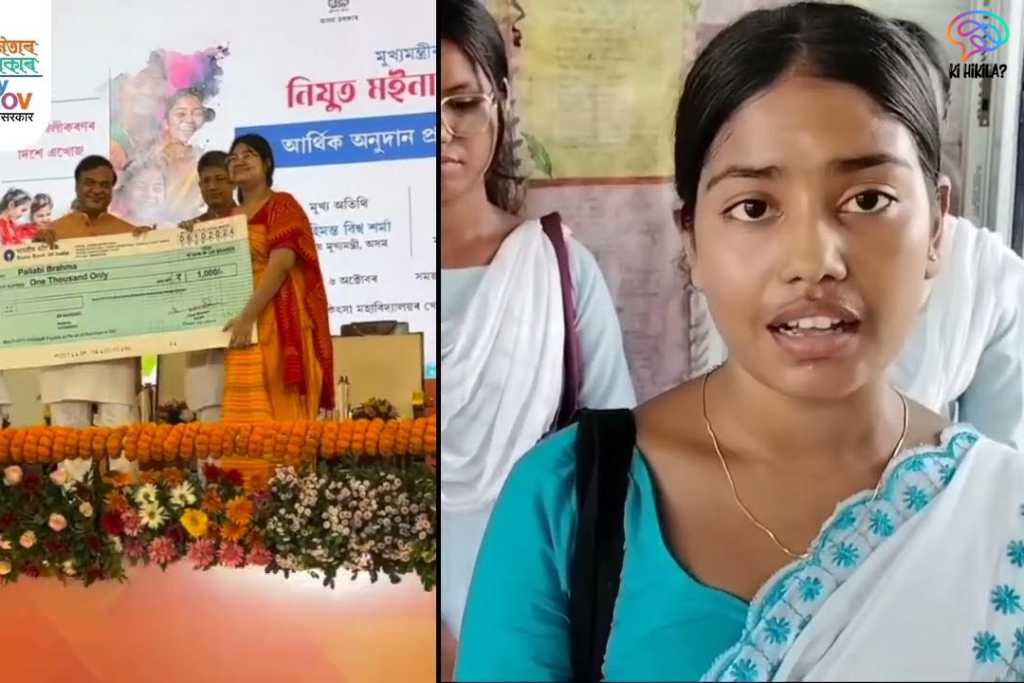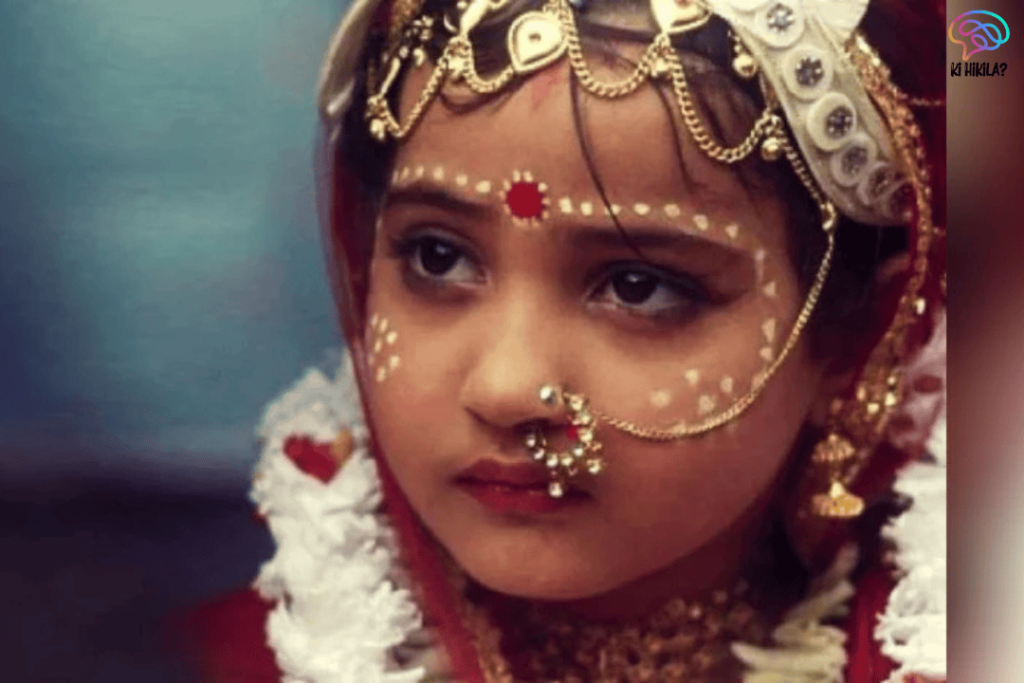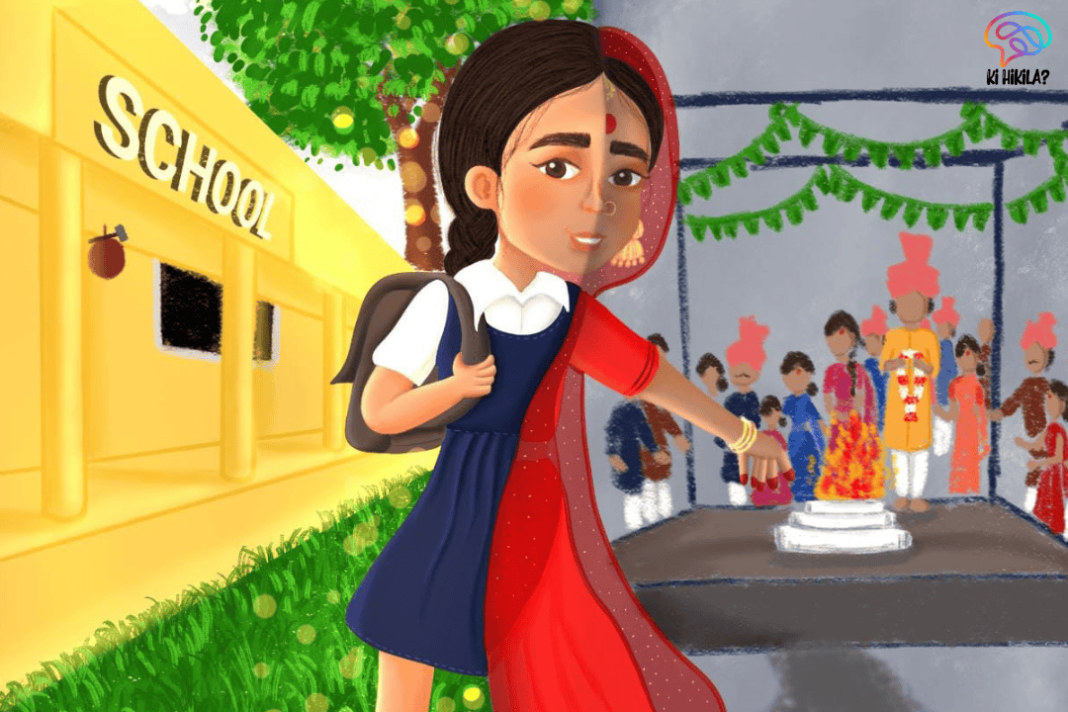The ‘Nijut Moina 2.0’ Scheme marks a significant stride in Assam’s mission to eradicate child marriage by 2026. Announced by Chief Minister Himanta Biswa Sarma, this second edition of the initiative builds upon the success of the original ‘Nijut Moina’ program, aiming to protect over 400,000 girls from early marriage while ensuring uninterrupted access to education. This ambitious plan reflects the government’s determination to safeguard the rights of young women and promote social reform across the state.
‘Nijut Moina 2.0’ Scheme Details
In its enhanced form, the ‘Nijut Moina 2.0’ Scheme extends financial support to girls studying in higher secondary, undergraduate, and postgraduate courses. The monthly assistance ranges from ₹1,000 for higher secondary students to ₹2,500 for those pursuing postgraduate degrees. This structured aid is designed to remove financial hurdles that often push young girls toward early marriages.

The decision to scale up the scheme is grounded in the belief that education is the most powerful tool for social transformation. By covering a wider range of educational stages, the program ensures that girls are supported through critical academic milestones, reducing dropout rates and encouraging higher studies.
Eligibility and Exclusions
The ‘Nijut Moina 2.0’ Scheme is open to all girl students, regardless of their family’s economic status. However, to maintain focus on the most vulnerable groups, certain exclusions apply:
- Married girls are generally ineligible, except for those in specific postgraduate and B.Ed courses.
- Daughters of ministers, MPs, and MLAs are excluded.
- Students who have received scooters under another government scheme are not eligible unless they voluntarily opt out of that benefit.
These exclusions are intended to direct resources to those most at risk of early marriage, ensuring maximum social impact.
Focus on Educational Empowerment
At its core, the ‘Nijut Moina 2.0’ Scheme is an educational empowerment initiative. The Assam government has made universal free admission available to all students, regardless of caste, religion, tribe, or gender. By coupling this policy with targeted financial assistance, the scheme tackles two major barriers to education—tuition costs and family income pressure.
This initiative is not just about keeping girls in classrooms—it’s about creating an environment where they can thrive academically and personally. The government’s investment in educational infrastructure, from building more schools to enhancing learning facilities, supports the scheme’s long-term goals.
Broader Social Impact
The implications of the ‘Nijut Moina 2.0’ Scheme extend far beyond education. Preventing child marriage is a direct step toward achieving gender equality and protecting children’s rights. Early marriage often leads to higher dropout rates, limited career opportunities, and health risks due to early pregnancies. By addressing these root causes, Assam is paving the way for a generation of educated, self-reliant women who can contribute actively to society.
Moreover, the scheme aligns with national and international goals, including the United Nations Sustainable Development Goals (SDGs) on gender equality, quality education, and the elimination of harmful practices.
Government’s Commitment to Social Change
The expansion of the scheme to include more educational stages and a broader beneficiary base highlights the government’s unwavering commitment to social reform. Assam’s administration is not merely introducing policies but actively monitoring and adjusting them to meet real-world needs.
This proactive approach signals a shift in governance—moving from short-term relief measures to long-term capacity building. The ‘Nijut Moina 2.0’ Scheme serves as both a safety net and a springboard, enabling young women to break free from cycles of poverty and traditional restrictions.
Future Prospects and Challenges

While the ‘Nijut Moina 2.0’ Scheme holds immense promise, its success will depend on sustained funding, community awareness, and effective implementation. Cultural resistance to ending child marriage, especially in rural areas, remains a significant challenge. The government must complement financial assistance with robust awareness campaigns, community engagement, and strict enforcement of child marriage laws.
If these challenges are addressed, the scheme could serve as a model for other Indian states, demonstrating how targeted financial aid coupled with educational access can bring about lasting social change.
Conclusion
The ‘Nijut Moina 2.0’ Scheme is not just a welfare program—it is a vision for a progressive Assam where every girl has the freedom and means to shape her own future. By combining financial support, educational empowerment, and social reform, the scheme stands as a beacon of hope in the fight against child marriage. If implemented effectively, it could change the lives of hundreds of thousands of young women and inspire similar movements across India.



